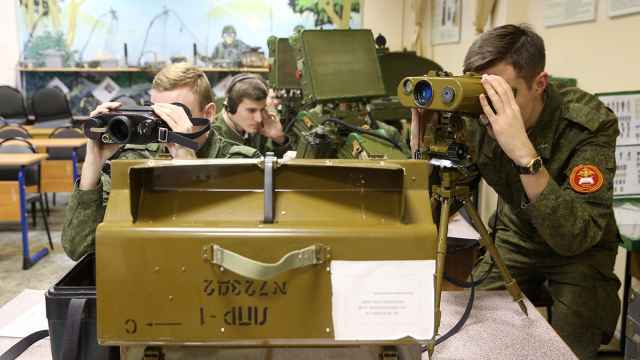The Russian government, reacting to the news that the extradition petition against Russian citizen Dmitry Ustinov was granted in Lithuania on Monday, has expressed concern over the United States' practice of sending requests for the extradition of Russian citizens directly to third-party countries.
"If American law enforcement agencies have complaints about the activity of any Russian citizens, as in the case of Ustinov, then as part of the specified agreement they should make contact with their Russian colleagues, and not seek the arrest of our citizens on the territory of third-party countries, sometimes not submitting to direct political pressure," Interfax reported Konstantin Dolgov, the Russian Foreign Ministry's commissioner for human rights, as saying.
Dmitry Ustinov was accused on March 25 of smuggling and planning to smuggle military equipment and subsequently laundering the profits. He was detained in Lithuania, where the U.S. petition for his extradition was granted on Monday. If convicted, he could face up to 20 years in prison.
Dolgov said that the Ustinov case "grossly ignores appropriate legal procedure."
Ustinov has seven days to appeal the verdict and certainly will, his lawyer Arturus Paulauskas told the radio station Voice of Russia on Tuesday.
Paulauskas admitted that his client would be guilty if the equipment in question, night vision devices and long range surveillance cameras with infrared and thermal sensors, were intended solely for military use.
"But some of the goods that he supposedly acquired or was going to acquire in the U.S. have a dual purpose. They are in both civilian and military circulation. I have found no information indicating that you must have a license for these goods," Paulauskas said.
A Message from The Moscow Times:
Dear readers,
We are facing unprecedented challenges. Russia's Prosecutor General's Office has designated The Moscow Times as an "undesirable" organization, criminalizing our work and putting our staff at risk of prosecution. This follows our earlier unjust labeling as a "foreign agent."
These actions are direct attempts to silence independent journalism in Russia. The authorities claim our work "discredits the decisions of the Russian leadership." We see things differently: we strive to provide accurate, unbiased reporting on Russia.
We, the journalists of The Moscow Times, refuse to be silenced. But to continue our work, we need your help.
Your support, no matter how small, makes a world of difference. If you can, please support us monthly starting from just $2. It's quick to set up, and every contribution makes a significant impact.
By supporting The Moscow Times, you're defending open, independent journalism in the face of repression. Thank you for standing with us.
Remind me later.





